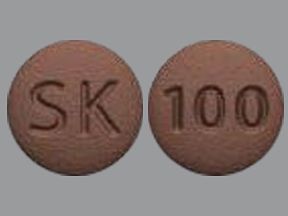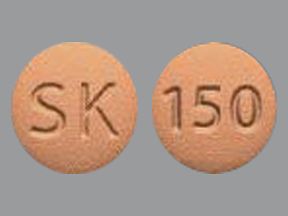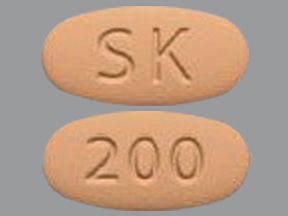Xcopri (cenobamate) is a brand-name drug that’s prescribed for focal onset seizures in adults. Xcopri comes as an oral tablet that’s typically taken once per day. The dosage can vary depending on how your body responds to the medication.
Xcopri belongs to a drug class called antiepileptic drugs (also known as anticonvulsants). Xcopri is not available in a generic version.
Keep reading for specific information about the dosage of Xcopri, including its strengths and how to take the medication. For a comprehensive look at Xcopri, see this article.
Note: This article describes the typical dosage for Xcopri provided by the drug’s manufacturer. When taking Xcopri, always follow the dosage prescribed by your doctor.
Below is detailed information about Xcopri’s recommended dosage.
Xcopri form
Xcopri comes as an oral tablet.
Xcopri strengths
Xcopri tablets come in the following strengths:
- 12.5 milligrams (mg)
- 25 mg
- 50 mg
- 100 mg
- 150 mg
- 200 mg
Typical dosage
When you start taking Xcopri, your doctor will create a dosing schedule for you to follow. They’ll prescribe a low dosage to begin treatment. Then, they’ll adjust it every 2 weeks to reach the amount that’s right for you. Your doctor will ultimately prescribe the smallest dosage that provides the desired effect. You’ll usually take this dosage long term. Your doctor may refer to this as your maintenance dosage.
The following information describes the Xcopri dosing schedule that’s commonly prescribed or recommended. However, be sure to follow the schedule your doctor prescribes for you. They’ll determine the best schedule and maintenance dosage to fit your needs.
Dosage for focal onset seizures
Xcopri is used to treat focal onset seizures (also known as partial seizures). This type of seizure starts in one area of the brain.
The recommended dosing schedule is as follows:
| Treatment week | Dose taken once per day |
| 1 and 2 (starting dosage) | 12.5 mg |
| 3 and 4 | 25 mg |
| 5 and 6 | 50 mg |
| 7 and 8 | 100 mg |
| 9 and 10 | 150 mg |
| 11 and later (maintenance dosage) | 200 mg |
Note: After you reach the typical maintenance dosage of 200 mg once per day, your doctor may decide to increase it further. To do this, they’ll add 50 mg to your daily dose once every 2 weeks. However, Xcopri’s maximum dosage is 400 mg once per day.
Long-term treatment
Xcopri is meant to be taken as a long-term treatment. If you and your doctor determine that Xcopri is safe and effective for you, you’ll likely take it long term.
Talk with your doctor if you have questions about what to expect with Xcopri treatment.
The Xcopri dosage your doctor prescribes may depend on whether you have other medical conditions. For example, if you have decreased liver or kidney function, your doctor may lower your Xcopri dosage. So if you have liver or kidney problems, tell your doctor. They’ll determine the right dosage for you.
Xcopri comes as an oral tablet that you swallow whole with a glass of water. Do not crush or chew the tablets. You can take Xcopri with or without food.
If you have trouble swallowing tablets, see this article for tips on how to take this form of medication. You can also talk with your doctor or pharmacist.
ACCESSIBLE DRUG LABELS AND CONTAINERSSome pharmacies offer labels with large print, braille, or a code you scan with a smartphone to convert text to speech. If your local pharmacy doesn’t have these options, your doctor or pharmacist might be able to recommend a pharmacy that does.
If you’re having trouble opening medication bottles, ask your pharmacist about putting Xcopri in an easy-open container. They also may recommend tools that can make it easier to open bottles.
If you miss a dose of Xcopri, talk with your doctor. They’ll advise you what to do. You can also ask your pharmacist
To help make sure that you don’t miss a dose, try using a medication reminder. This can include setting an alarm or putting a note where you’ll see it, such as on your bathroom mirror or bedside table. You could also download a reminder app on your phone.
It’s important that you do not take more Xcopri than your doctor prescribes. For some medications, taking more than the recommended amount may lead to harmful effects or overdose. To learn about side effects of Xcopri, see this article.
If you take more than the recommended amount of Xcopri
Call your doctor right away if you believe you’ve taken too much Xcopri. Another option is to call America’s Poison Centers at 800-222-1222 or use its online tool. If you have severe symptoms, immediately call 911 or your local emergency number, or go to the nearest emergency room.
Xcopri is an antiepileptic drug, which is also known as an anticonvulsant. Similar to some other medications in this drug class, taking Xcopri can lead to physical dependence and withdrawal. With dependence, your body needs a drug in your system to function as usual. Withdrawal symptoms are side effects that can occur when you stop taking a drug that your body has become dependent on.
Withdrawal symptoms of Xcopri can include:
A sudden stop in Xcopri treatment can also increase your risk of more frequent seizures and status epilepticus (a seizure lasting longer than 5 minutes). Due to this risk, your doctor will recommend a safe way to stop Xcopri treatment. They’ll gradually reduce your dosage over at least 2 weeks. For more information, talk with your doctor.
The dosages in this article are typical dosages provided by the drug manufacturer. If your doctor recommends Xcopri for you, they’ll prescribe the dosage that’s right for you. Always follow the dosage that your doctor prescribes.
As with any drug, never change your dosage of Xcopri without your doctor’s recommendation. If you have questions about the dosage of Xcopri that’s best for you, talk with your doctor.
Besides learning about dosage, you may want other information about Xcopri. These additional articles might be helpful:
- More about Xcopri. For information about other aspects of Xcopri, refer to this article.
- Details about your condition. For details about your condition, see our epilepsy and seizures hub.
Disclaimer: Medical News Today has made every effort to make certain that all information is factually correct, comprehensive, and up to date. However, this article should not be used as a substitute for the knowledge and expertise of a licensed healthcare professional. You should always consult your doctor or another healthcare professional before taking any medication. The drug information contained herein is subject to change and is not intended to cover all possible uses, directions, precautions, warnings, drug interactions, allergic reactions, or adverse effects. The absence of warnings or other information for a given drug does not indicate that the drug or drug combination is safe, effective, or appropriate for all patients or all specific uses.



